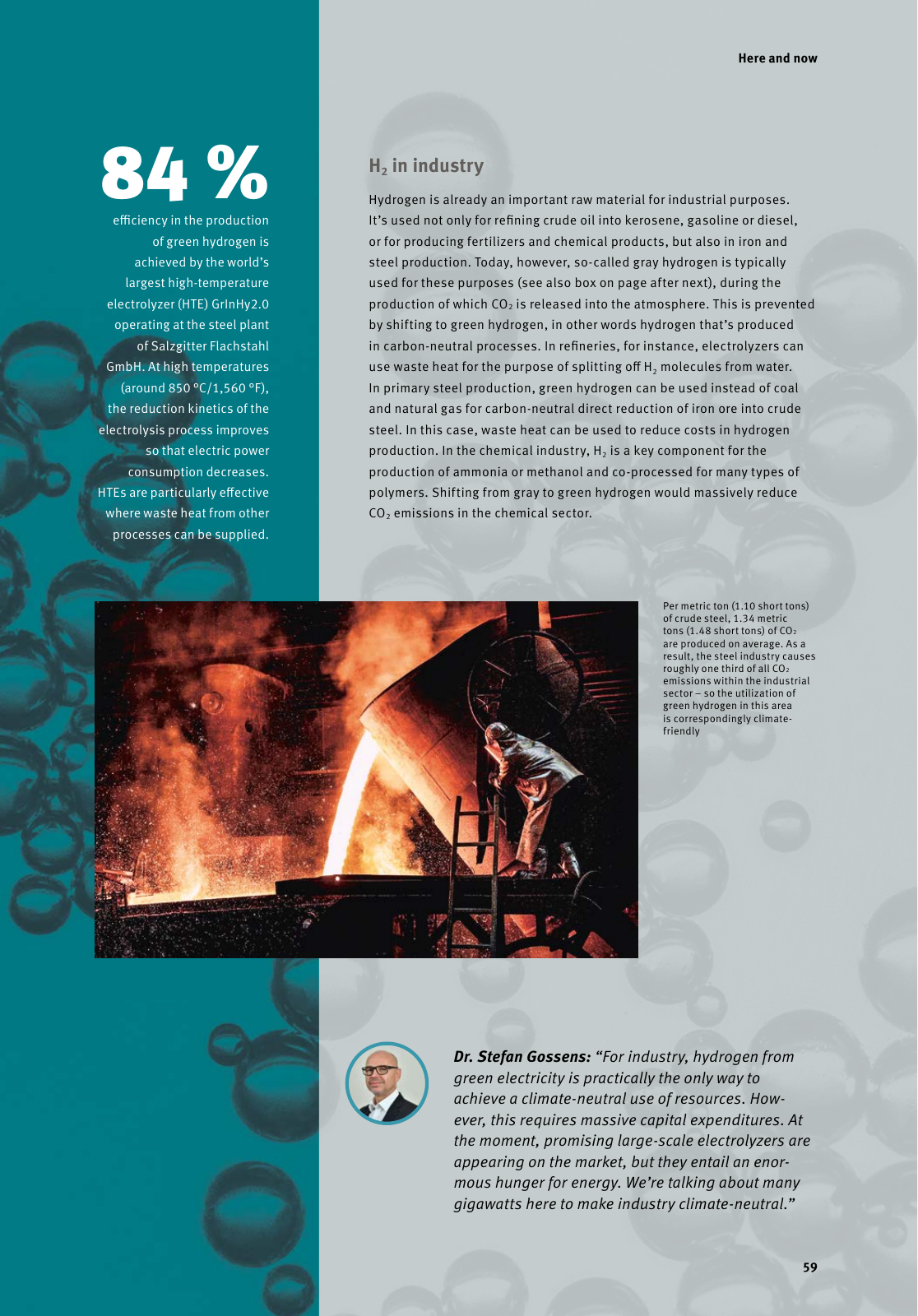Hydrogen is already an important raw material for industrial purposes It s used not only for refi ning crude oil into kerosene gasoline or diesel or for producing fertilizers and chemical products but also in iron and steel production Today however so called gray hydrogen is typically used for these purposes see also box on page after next during the production of which CO2 is released into the atmosphere This is prevented by shifting to green hydrogen in other words hydrogen that s produced in carbon neutral processes In refi neries for instance electrolyzers can use waste heat for the purpose of splitting off H2 molecules from water In primary steel production green hydrogen can be used instead of coal and natural gas for carbon neutral direct reduction of iron ore into crude steel In this case waste heat can be used to reduce costs in hydrogen production In the chemical industry H2 is a key component for the production of ammonia or methanol and co processed for many types of polymers Shifting from gray to green hydrogen would massively reduce CO2 emissions in the chemical sector Dr Stefan Gossens For industry hydrogen from green electricity is practically the only way to achieve a climate neutral use of resources How ever this requires massive capital expenditures At the moment promising large scale electrolyzers are appearing on the market but they entail an enor mous hunger for energy We re talking about many gigawatts here to make industry climate neutral H2 in industry Per metric ton 1 10 short tons of crude steel 1 34 metric tons 1 48 short tons of CO2 are produced on average As a result the steel industry causes roughly one third of all CO2 emissions within the industrial sector so the utilization of green hydrogen in this area is correspondingly climate friendly effi ciency in the production of green hydrogen is achieved by the world s largest high temperature electrolyzer HTE GrInHy2 0 operating at the steel plant of Salzgitter Flachstahl GmbH At high temperatures around 850 C 1 560 F the reduction kinetics of the electrolysis process improves so that electric power consumption decreases HTEs are particularly eff ective where waste heat from other processes can be supplied 84 59 Here and now

Hinweis: Dies ist eine maschinenlesbare No-Flash Ansicht.
Klicken Sie hier um zur Online-Version zu gelangen.
Klicken Sie hier um zur Online-Version zu gelangen.